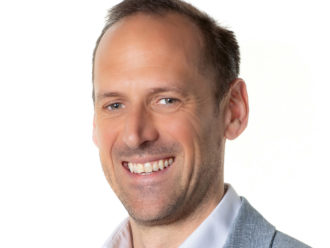How worried should you be when you start finding investment wisdom in zombie movies? I know the predominantly shopping mall-bound ‘Dawn of the Dead’ can be seen as a satire on consumerism and from there it is but a moaning stagger to behavioural finance and the herd instinct but ‘World War Z’? I could just about take Brad Pitt as Benjamin Button – Benjamin Graham would be pushing it.
Still, in the film Pitt’s character learns how, thanks to ‘the tenth man’, Israel was able to build a wall to keep the undead hordes at bay. “If nine of us with the same information arrived at the same conclusion, it’s the duty of the tenth man to disagree,” says the man from Mossad. “No matter how improbable it may seem, the tenth man has to start thinking with the assumption the other nine were wrong.”
That is a neat enough fit with contrarianism and of course by now you will have twigged where I have been heading with this – for surely the global hedge fund industry will have been hoping the doubts recently expressed by Calpers as to the value the sector now offers might remain squarely within the realms of tenth-man thinking.
“Hedge funds are certainly a viable strategy for some,” the pension giant’s CIO Ted Eliopoulos has been widely quoted as saying, “but at the end of the day, when judged against their complexity, cost and the lack of ability to scale at Calpers’ size, the ARS programme [its ‘Absolute Return Strategies’ allocation] is no longer warranted.”
Barely had the words of Eliopoulos – a man who, yes, knows his Absolute Return Strategies from his elbow – hit the institutional headlines and London Pensions Fund Authority chairman Edmund Truell was suggesting hedge fund fee structures were a serious topic of conversation among schemes of his acquaintance whenever they gather wherever it is they gather to discuss such matters.
Is scepticism about what hedge funds can bring to the party – spoiler alert – even now scaling the wall to sink its teeth into the wider world of pensions? Very possibly – and especially if they saw the FT’s calculation that “trustees have handed about $800bn of retirement savings to hedge fund managers, and paid them about $117bn for doing so.
In return the savers saw their money grow by about $156bn.” It has not been my intention here to paint the majority of institutional investors as mindless zombies – that has merely been a happy by-product – just as it is not my intention to suggest it is all about fees.
As Eliopoulos and Truell both implied, value for money rather than cost must always be the bigger consideration for investors. My actual conclusion, such as it is, would be more along the lines of avoiding the temptation to make any kind of investment simply because one’s peers are. That really would be zombie-like behaviour.
Next month: the influence of Mary Poppins – “Practically perfect people never permit sentiment to muddle their thinking” – on value investing.
Julian Marr is editorial director of Adviser-Hub and Thought Leadership Live and co-author of Investing in emerging markets – the BRIC economies and beyond.




Comments